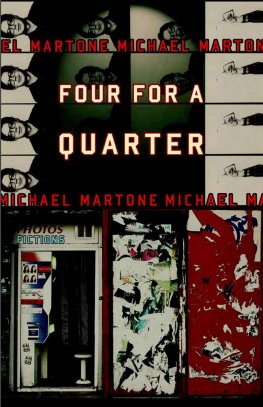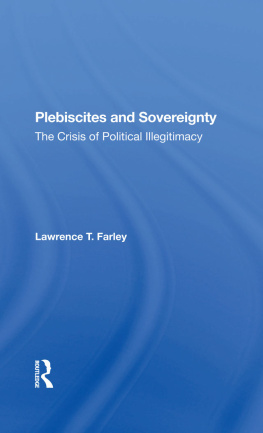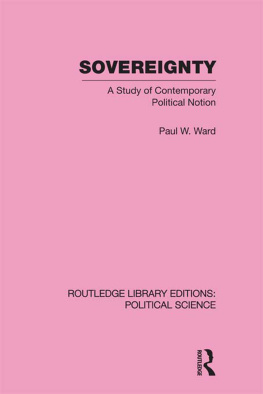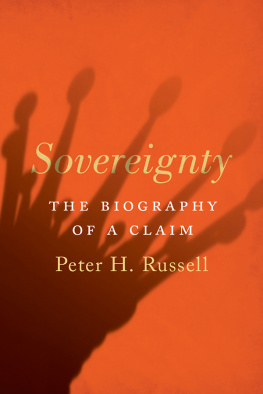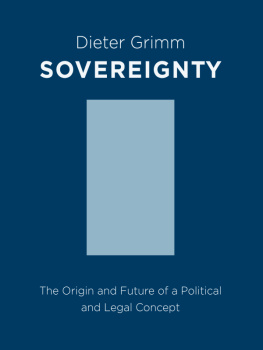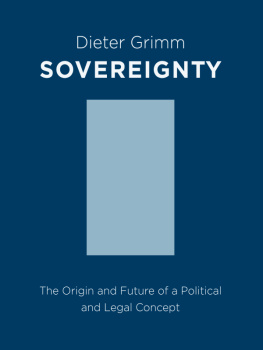Loar - Political Magic: British Fictions of Savagery and Sovereignty
Here you can read online Loar - Political Magic: British Fictions of Savagery and Sovereignty full text of the book (entire story) in english for free. Download pdf and epub, get meaning, cover and reviews about this ebook. City: Oxford, year: 2014, publisher: Fordham University Press;Oxford University Press, USA, genre: Romance novel. Description of the work, (preface) as well as reviews are available. Best literature library LitArk.com created for fans of good reading and offers a wide selection of genres:
Romance novel
Science fiction
Adventure
Detective
Science
History
Home and family
Prose
Art
Politics
Computer
Non-fiction
Religion
Business
Children
Humor
Choose a favorite category and find really read worthwhile books. Enjoy immersion in the world of imagination, feel the emotions of the characters or learn something new for yourself, make an fascinating discovery.

- Book:Political Magic: British Fictions of Savagery and Sovereignty
- Author:
- Publisher:Fordham University Press;Oxford University Press, USA
- Genre:
- Year:2014
- City:Oxford
- Rating:5 / 5
- Favourites:Add to favourites
- Your mark:
- 100
- 1
- 2
- 3
- 4
- 5
Political Magic: British Fictions of Savagery and Sovereignty: summary, description and annotation
We offer to read an annotation, description, summary or preface (depends on what the author of the book "Political Magic: British Fictions of Savagery and Sovereignty" wrote himself). If you haven't found the necessary information about the book — write in the comments, we will try to find it.
Loar: author's other books
Who wrote Political Magic: British Fictions of Savagery and Sovereignty? Find out the surname, the name of the author of the book and a list of all author's works by series.
Political Magic: British Fictions of Savagery and Sovereignty — read online for free the complete book (whole text) full work
Below is the text of the book, divided by pages. System saving the place of the last page read, allows you to conveniently read the book "Political Magic: British Fictions of Savagery and Sovereignty" online for free, without having to search again every time where you left off. Put a bookmark, and you can go to the page where you finished reading at any time.
Font size:
Interval:
Bookmark:
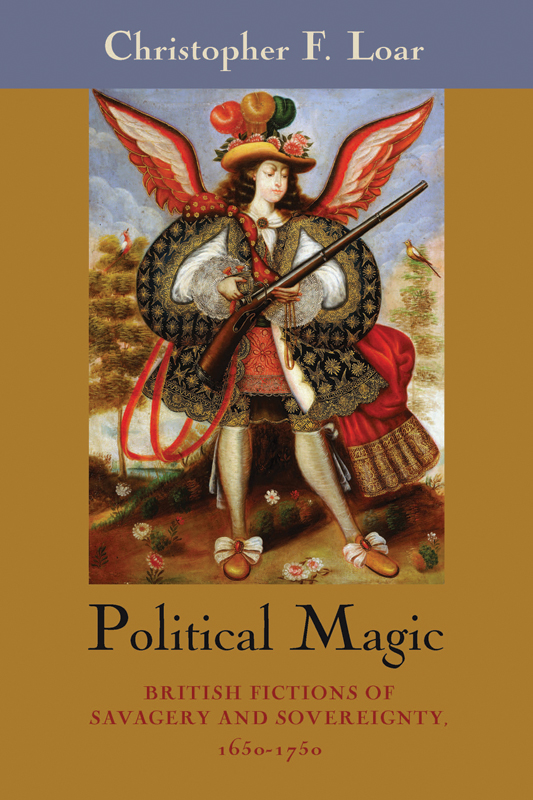
POLITICAL MAGIC

Copyright 2014 Fordham University Press
All rights reserved. No part of this publication may be reproduced, stored in a retrieval system, or transmitted in any form or by any meanselectronic, mechanical, photocopy, recording, or any otherexcept for brief quotations in printed reviews, without the prior permission of the publisher.
An earlier version was previously published as The Exceptional Eliza Haywood: Women and Extralegality in Eovaai , Eighteenth-Century Studies 45, no. 4 (2012): 56584.
Fordham University Press has no responsibility for the persistence or accuracy of URLs for external or third-party Internet websites referred to in this publication and does not guarantee that any content on such websites is, or will remain, accurate or appropriate.
Fordham University Press also publishes its books in a variety of electronic formats. Some content that appears in print may not be available in electronic books.
Library of Congress Cataloging-in-Publication Data
Loar, Christopher F.
Political magic : British fictions of savagery and sovereignty, 16501750 / Christopher F. Loar. First edition.
pages cm
Includes bibliographical references and index.
ISBN 978-0-8232-5691-4 (cloth : alk. paper)
1. Political fiction, EnglishHistory and criticism. 2. English fiction17th centuryHistory and criticism. 3. English fiction18th centuryHistory and criticism. 4. Politics and literatureGreat BritainHistory17th century. 5. Politics and literatureGreat BritainHistory18th century. 6. Politics in literature. 7. Authority in literature. 8. Aliens in literature. I. Title.
PR858.P6L83 2014
823'.509358dc23
2013037283
Printed in the United States of America
16 15 14 5 4 3 2 1
First edition
For Barbara
Contents
In the decade I spent working on this book, I received aid and comfort for which these words of thanks are but a paltry recompense. This work could never have been completed without the extraordinary mentoring and support I received as a graduate student at UCLA. Felicity Nussbaum patiently supervised this project in its early stages and has continued to offer advice and criticism in the intervening years. I owe an infinite debt to her for her relentless erudition and her boundless patience. During my first year of graduate study, I was lucky to take a seminar with Helen Deutsch; her class first triggered my interest in the eighteenth century, and the habit of energetic and creative reading she instilled has changed my life. Her support for this project has been unfailing and very, very welcome. I am also very grateful to Christopher Looby and Margaret Jacob for their sage counsel. Allison Harvey, Nicole Horejsi, James Masland, Manushag Powell, and Melissa Sodeman read with patience the earliest versions of these pages; I am as grateful for their bracing criticism as for the warmth of their friendship. Thanks as well to Robert Sterner and Molly Hiro for reading Adam Smith, Thomas Hobbes, and Jean-Jacques Rousseau with me, and to boon companions Royce Dieckmann, Kevin Cooney, Andy Fleck, Christopher Flynn, Anthony Galluzzo, David Long, Julia Lee, Andrew Rosenblum, and Anne Stiles.
Most of this book was rewritten during my years at UC Davis, and to my colleagues there I also offer hearty thanks. I was fortunate enough to receive outstanding guidance and mentorship from three skilled department chairs: Margaret Ferguson, David Robertson, and Scott Simmon. Margaret Ferguson also read and commented on major pieces of the manuscript, as did Kathleen Frederickson, Alessa Johns, John Marx, Timothy Morton, Catherine Robson, and David Simpson. Many thanks to them for their suggestions great and small. Extra thanks are due to John Marx, who helped me wean myself from a dangerous preoccupation with forts. Frances Dolan and Gina Bloom provided astute hints and advice at key moments. Perhaps just as important was the generous friendship of Nathan Brown, Seeta Chaganti, Joshua Clover, Gregory Dobbins, Elizabeth Freeman, Desire Martin, Elizabeth Miller, Matthew Stratton, and Michael Ziser. I also learned much from students in my graduate seminars, whose creative and intellectual energies were a constant inspiration.
Farther from home, I have benefited from the counsel of many other generous and gifted scholars. Marc Redfield and Jill Benton encouraged me at an important and early stage in my career. I welcomed acute critiques and suggestions from Arne Bialuschewski, Nicholas Hudson, Jayne Lewis, Rivka Swenson, and Cynthia Wall, as well as the anonymous reviewers for my previously published articles on Defoe and on Haywood. Many thanks to the editors of Eighteenth-Century Studies and Eighteenth-Century Fiction for permission to reprint portions of those articles here. Faculty at my new institutional home, Western Washington University, asked probing and helpful questions as the book neared completion. I was blessed with two sensitive and brilliant referees for my manuscript, Elliott Visconsi and Laura Rosenthal. I am also grateful to my editors at Fordham University PressHelen Tartar, Thomas Lay, and Eric Newmanwho have steered this work from manuscript to book with keen eyes and steady hands.
Research for this project was supported by funds from the English departments at UCLA and UC Davis and by an Andrew W. Mellon Foundation Fellowship at the Huntington Library. Important research for this project was conducted at the Huntington and at the William Andrews Clark Memorial Library. Many thanks to the able staff at these libraries for their assistance.
It might go without saying that this book would never have existed without the loving encouragement of my family. Thanks to my mother, Patricia Loar, for instilling in me a deep love of the written word. Thanks to my father, Darrel Loar, for showing me how to have the courage to make bold and life-changing decisions. Thanks to all my siblings for their faith and encouragement. Barbara Lehman may, at times, have wished that this book had not required so much of my attention, but she has never been anything other than supportive. To her this book is dedicated. Honorable mention goes to Micah Lehman-Loar, who has never lived in a world in which his father was not trying to write this book. Not until now, anyway.
Can a savage, remaining a savage, be civil? Were not we ourselves made and not born civil in our progenitors days? And were not Caesars Britons as brutish as Virginians? The Roman swords were best teachers of civility to this and other countries near us.
Samuel Purchas, marginal note in William Stracheys True Reportory (1610)
At first it frighted them to the last degree, and I may well say it frighted them out of their wits, for they that were near it started so violently that they fell down and lay speechless for some time; those that were farther off ran away as if it had been some new kind of lightning and thunder but when they saw the two creatures fall down dead out of the air, and could see nothing that flew up to them to kill them, they were perfectly astonished, and laid their two hands on their breasts and looked up to heaven as if they were saying their prayers in the most solemn manner imaginable.
Daniel Defoe, A New Voyage Round the World (1724)
Samuel Purchas is startlingly frank in his depiction of the role of violence in producing the civility that undergirds modern forms of government. For Purchas, there is no categorical distinction between savage peoples in the New World and the ancient inhabitants of the British Isles, who themselves required an armed conqueror to subdue them and fashion them into civil subjects. The modern English subject is separated from the wild Virginian more by temporality than by skin color. While most later British advocates of efforts to bring civility to savages would try to obscure colonialisms violence, Purchas highlights the brutal fact of conquest as a fundamental and inevitable moment in the transition from lawless savagery to civility. This book argues that for some writers, Romes civilizing project in England never ended: British fictions of empire in the century following Charles Is execution are centrally concerned not only with conquest, conversion, and slavery but alsoeven primarilywith reimagining fundamental political categories of the civilized world such as sovereignty, liberty, and civility.
Font size:
Interval:
Bookmark:
Similar books «Political Magic: British Fictions of Savagery and Sovereignty»
Look at similar books to Political Magic: British Fictions of Savagery and Sovereignty. We have selected literature similar in name and meaning in the hope of providing readers with more options to find new, interesting, not yet read works.
Discussion, reviews of the book Political Magic: British Fictions of Savagery and Sovereignty and just readers' own opinions. Leave your comments, write what you think about the work, its meaning or the main characters. Specify what exactly you liked and what you didn't like, and why you think so.

